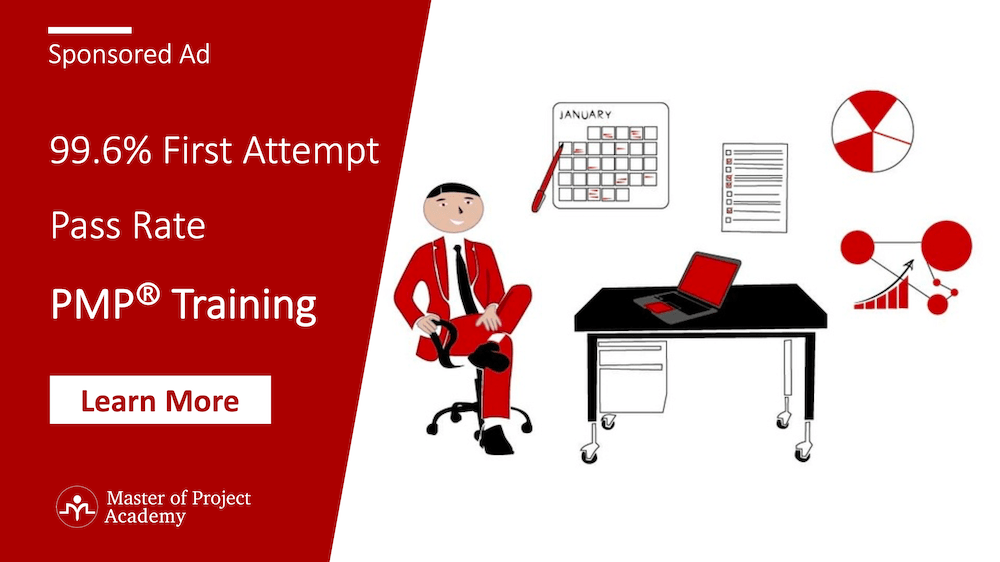Are you a working professional who wants to climb the ladder in his career? Or are you a project manager who wants to boost his experience and skills? If yes then you must be planning for getting the PMP certification. Further, you must be wondering how much budget you need to spare to appear for the PMP exam, ie. the PMP exam fee.
You must be coming across different information at various sources on the internet about how much is the PMP exam fee? Furthermore, maybe you are thinking about what will be the cost if you plan to reattempt the exam or cancel it? What will be the PMP exam fee if, due to the workload, you want to reschedule your exam? How much refund for the PMP exam fee you will get on the cancellation?
Here, in this article, we will provide you complete details about the PMP exam fee. Besides, you will get information on the PMP exam fee for re-examination and PMP exam fee for rescheduling. We will also talk about the PMP exam fee for cancellation if you cancel the exam and refund policy. This will help you to determine the budget you need to have to appear for the PMP exam. But first, let us understand what is PMP Certification.

PMP Certification
Project Management Professional (PMP) Certification is a globally recognized and demanded certification in project management. This certification demonstrates to employers, clients, and peers that a project manager possesses the required skills, knowledge and experience to make the project a real success. You can read the PMP study guide to learn how to get ready for the PMP exam.
This certification is global i.e. once you become PMP certified, you can work in any industry, any location, using any methodology regardless of geography or domain.
Furthermore, PMP certification recognizes the individual competency to perform the role of the project manager in leading and directing projects.
Moreover, with passing years, PMP certification has garnered global recognition. Besides, this certification helps a certified individual to earn up to 25% higher salary than non-certified individuals.
PMP Certification ensures that PMP certified individuals speak and understand the global language of project management. Additionally, PMP Certification helps you to expand your network by connecting you to a community of professionals, organizations, and experts worldwide.

PMP Exam
PMP Exam comprises 180 questions. There are 230 minutes to complete the exam. The PMP Exam Questions will be a combination of multiple-choice, multiple responses, matching, hotspot, and limited fill-in-the-blank types of questions.
| Total Exam Questions | Question Types | Duration |
| 180 | multiple-choice, multiple responses, matching, hotspot, limited fill-in-the-blank | 230 minutes |
The allottedPMP Exam time is ~4 hours. There are no scheduled breaks during the examination. Though you are allowed to take the break if needed but your exam clock continues to count down.
Before the start of the exam, you get 15 minutes to go through the tutorial followed by a survey. But it is optional and this time is not included in the exam time of 4 hours.
Prerequisites to appear for PMP examination are:
You need to meet the eligibility criteria for PMP certification. For that, you need to meet both educational and professional experience requirements.
The first and foremost step to apply for PMP certification is to check your education and experience level against the eligibility criteria or PMP certification requirements that are mentioned below.
| S.No | Education Requirement | Experience of leading and directing projects | 35 Contact Hours |
| 1 | 4 year Degree Course | 3 years leading the project with 4500 Hours | 35 Hours of project management education/training |
| 2 | Secondary degree i.e. High School Diploma or global equivalent | 5 years leading the project with 7500 hours |
Point to note here is that all the project management experience must have been gained within the last 8 consecutive years prior to your submission of application.
Secondly, you need to attend project management training from a recognized training institute and earn 35 PDUs or contact hours. You can attend a PMP training for this.
Once you fulfill both requirements of the PMP exam, then you need to plan to appear in the exam.
PMP exam is sponsored by the non-profit organization in project management i.e. Project Management Institute (PMI).
PMP Exam Content Outline
PMP Exam is based on the blueprint contained in the PMP Exam Content Outline. This exam blueprint lists the percentage of questions contained in each project management process groups.
| Domain/Project Management Process Group | Percentage of Questions |
| Initiating | 13% |
| Planning | 24% |
| Executing | 31% |
| Monitoring and Controlling | 25% |
| Closing | 7% |
Now the question about the PMP exam fee comes, i.e. how much you should spare to become PMP certified.
What is the PMP Exam Fee?
PMP exam fee varies on the factor i.e. PMI Membership Status. Also, there are 2 modes of examination or delivery types that are paper-based or online via center-based.
For center-based examination which is in online mode and paper-based examination, PMP exam fee is shown below:
| Mode of Examination | PMI Membership Status | Price in USD (US Dollars) | Price in Euros |
| Center-based and Paper Based | Member | 405 | 340 |
| Non-Member | 555 | 465 |
Here you can see the difference in the PMP exam fee whether you are a PMI member or not. You can save 150 USD if you are a member of the PMI.
To become a PMI Member, you need to register yourself at www.PMI.org and pay the membership fee of USD 129 and USD 10 for one time application fee. This membership is only valid for one year. Then you need to renew it by making the payment of membership fees and so on.
Benefits of PMI membership are:
1. You can access numerous resources, books, webinars, free articles, question bank at PMI.org site.
2. Besides you get access to PMBOK Guide for free.
3. You can build your network through chapter meetings, events, and seminars.
Point to note is that when you are submitting the payment for the exam:
- You need to be the PMI member in good standing or
- If you have recently applied for PMI membership before applying for certification, then you need to ensure that you receive the confirmation of membership before you make payment.
- In case you haven’t become a member at that point and membership is not completely processed then you will be charged the non-member rate.
- This means that if PMI membership is obtained after you submit payment for the certification then PMI will not refund the difference.
PMP Exam Fee for Re-Examination
Once your PMP application is approved, you have 1 year eligibility period to pass the PMP exam. During this 1 year duration, you can take the exam up to 3 times.
Hence, PMP exam fee for re-examination when you appear for 2nd or 3rd time is:
| Mode of Examination | PMI Membership Status | Price in USD (US Dollars) | Price in Euros |
| Center-based or Paper-Based | Member | 275 | 230 |
| Non Member | 375 | 315 |
What happens if your eligibility period expires and you haven’t passed the PMP exam yet?
If you haven’t cleared the PMP exam and your eligibility period of 1 year expires then you must reapply for the certification.
What happens if you don’t pass the PMP exam after appearing 3 times during the eligibility period?
In 1 year eligibility period, if you fail the PMP exam 3 times then you need to wait for 1 year from the date of the last exam you took to reapply for the PMP certification.
But there is a catch here! Even if you cannot apply for PMP certification for a year, you can opt for any other PMI certification like CAPM (Certified Associate in Project Management), PMI-SP (PMI Scheduling Professional), PMI-PBA (PMI Professional in Business Analysis), PMI-RMP (PMI Risk Management Professional), PMI-ACP (PMI Agile Certified Professional), PgMP (Program Management Professional) or PfMP (Portfolio Management Professional). You just need to submit respective certification fees and then you can appear for the certification exam.
Continuing Certification Requirements (CCR) Certification Renewal
The purpose of the CCR Program is to enhance continuous learning and development among certification holders.
If you passed the PMP exam and have become PMP certified, then you must actively maintain the certification through participation in the CCR Program and certification renewal takes place every 3 years.
| Mode of Examination | PMI Membership Status | Price in USD (US Dollars) |
| CCR Certification Renewal | Member | 60 |
| Non Member | 150 |
PMP Exam Fee for Rescheduling
You can cancel or reschedule the PMP exam at any point in the time. Due to limited seat capacity at test centers, if you reschedule at a later stage or cancel the exam then the PMP Exam fee will still be charged.
Hence, to avoid the rescheduling fee, you need to cancel or reschedule more than 48 hours or 2 full calendar days before your scheduled exam date.
What happens if you cancel or reschedule the PMP exam within 2 days of your exam date?
If you cancel or reschedule your exam within 48 hours or 2 calendar days of the scheduled exam date, all the PMP exam fee and the ability to reschedule are forfeited.
This means if you plan to wait until you are within 2 days of your PMP exam date, you will be able to cancel the exam but PMI will forfeit the PMP exam fee. Hence, you will not be able to reschedule your exam date at this point. Furthermore, you will need to pay re-examination fees to schedule a new exam.
For Example:
| Date of Exam Scheduled | The date you reschedule the exam or cancel the exam | PMP Exam Fee Amount |
| 2 Days Policy | ||
| 6 April | 3 April | USD 70 |
| 6 April | 4 April ( you are unable to reschedule but can cancel the exam) | Forfeit the entire PMP exam fee |
Hence, you need to make sure that rescheduling or cancellation of the PMP exam must happen before you are within 2 calendar days of your exam date.
What happens if you cancel or reschedule the PMP exam within 30 days of your exam date?
If you cancel or reschedule the PMP exam within 30 days of your scheduled exam date then you will be charged a fee of USD 70. It will appear on the credit card as a charge from the test vendor.
Make a note that the 30 day period doesn’t include the day of the exam appointment. So, to avoid the fee, you have to reschedule or cancel the exam before the 30 day period begins. For instance, if your scheduled exam date is 6th May then you must cancel or reschedule the PMP exam on or before 5th April to avoid the fee.
For example:
| Date of Exam Scheduled | The date you reschedule the exam or cancel the exam | PMP Exam Fee Amount |
| 30 days Policy | ||
| 6th May | 5th April (or before) | No Fee |
| 6th May | 6th April up to 3rd May | USD 70 |
Exceptional Cases for PMP Exam Fee Refunds: Extenuating Circumstances
Due to some personal emergency, you may miss a scheduled exam date resulting in no show status. Or you might be unable to change your exam date before 30 days within your exam scheduled date then extenuating circumstance policy may apply.
Extenuating circumstances include medical emergencies, illness or death in the immediate family, natural disasters, pandemics like coronavirus or military deployment.
In such scenarios, it will be under the discretion of PMI to evaluate these situations on case to case basis and determine if a refund of the rescheduling PMP Exam fee is appropriate or not. If your extenuating circumstance claim is not approved then you will be required to pay the full re-examination PMP exam fee to sit for the exam.
Here ‘No show’ status refers to a situation when you fail to notify PMI within specified periods to cancel or reschedule your exam or if you fail to meet a scheduled exam date. If you reach this status then the PMP exam fee will be forfeited. Hence you have to pay the full re-examination PMP exam fee to schedule another date.
You can contact PMI customer care within 72 hours following the missed exam date. Depending upon the circumstances, you will be asked to explain along with supporting documents such as medical documents, accident reports, etc. If PMI approves them then you can reschedule or cancel your exam without penalty.
How to reschedule or cancel your examination?
Log in to the PMI site, click the links onscreen to cancel or reschedule the exam.
Make a note that PMI doesn’t accept email as an acceptable form of communication to cancel or reschedule your exam date.
If you are facing any issue in canceling or rescheduling your exam date due to some internet connectivity issue then you can call the test vendor directly.
PMP Exam Cancellation & Refund
If the PMP exam is canceled and rescheduled outside 30 days from the date of purchase and up to 48 hours before the scheduled exam date, then the rescheduling PMP exam fee will be applied.
If you have not scheduled or have taken the PMP certification exam within the time frame, then you can request a refund within 30 days from the date of purchase.
Once the refund is processed, then the application will get closed. Hence, the eligibility period will no longer be valid. For a request to refund the PMP exam fee, you may send the email to [email protected].
Under the following instances, PMI will not give you any refund:
1. If your eligibility period of 1 year expires and you haven’t scheduled the exam yet, then you will not receive the refund for the PMP exam fee. Hence, the entire amount of PMP exam fee will be forfeited. If you still wish to obtain the certification then you have to reapply and submit the PMP exam fee again.
2. If you have scheduled the exam but couldn’t appear for it or you have neither canceled the exam nor provided rescheduling notification to PMI’s testing partner, then you will not receive the refund. Hence, the entire amount of PMP exam fee will be forfeited.
What is the PMBOK Guide?
PMBOK Guide is considered as the outline of the PMP exam and PMP materials are prepared with the help of the PMBOK Guide. This guide is used as a reference guide for Project Management Professional certification. The latest version used is PMBOK 6th Edition.
PMBOK framework consists of 5 Process Groups and 10 Knowledge Areas comprising of 49 Processes.
There are 2 ways to group processes. One is “Process Groups” and the other way is to categorize them by “Knowledge Areas”. In PMBOK Guide, it is organized by knowledge areas to make you understand the specific area in depth. Hence, to prepare for PMP certification, one needs to understand knowledge areas in detail.
10 Knowledge Areas of PMBOK Guide
A knowledge area represents an area of project management defined by its knowledge requirement. Further, it encompasses processes, practices, inputs, outputs, tools, and techniques. Here, knowledge areas group the project management processes by subject area such as Scope, Schedule, Cost, Quality, Risk, Human Resource, Procurement, and Stakeholder, etc.
These knowledge areas are interrelated, however, they are defined separately from the project management perspective. Moreover, these knowledge areas are used in the project most of the time.
Project Integration Management
The purpose of the Integration Management knowledge area is to get all of the process groups together. It pulls all the pieces of a project together into a cohesive whole. Hence, the project manager plays the main role in this knowledge area. He integrates the work of everyone on the team through all of these major activities to keep the project on track.
Project Scope Management
Scope Management knowledge area defines what work is required and then making sure all of that work and only that work is completed.
Project Schedule Management
Schedule Management knowledge area defines breaking the work down into activities so you can put them in order and come up with estimates for each of them. Further, it ensures that all of the work happens in the right order, gets done by the right people and doesn’t take much of time.
Moreover, this knowledge area defines how deadlines are kept. It works in a way that it determines what work you need to do, how you will do it, what resources you will use, and how long it will take. And finally, this knowledge area talks about how to develop and control the schedule.
Project Cost Management
Cost Management knowledge area defines planning, estimating, budgeting, funding, managing and controlling costs. It ensures to complete the project within the approved budget. Managing the cost in the project is regardless of project size whether it is small or big, how many resources and activities are in it. But, the process of figuring out the budget remains the same.
Project Quality Management
Quality Management knowledge area defines creating and following organization policies, procedures and tailoring them to ensure the project meets the needs of the customer. Further, it ensures that the project is completed in compliance with the project requirements and of high quality.
Project Resource Management
Resource Management knowledge area defines planning, estimating activity resources, acquiring, developing, managing and controlling the resources needed for the successful completion of the project. Here, resources refer to not only human resources but also include the facilities, material or physical resources, equipment required to perform the work of the project. Hence, it ensures that the right resources will be available to the project manager and project team at the right time and place.
Project Communications Management
Communications Management knowledge area defines keeping everybody in the loop. That means, this knowledge area involves everyone talking about the work done so that they all stay on the same page. Thereby, everyone has information they need to resolve any issues and keep the project moving forward. Besides, it involves developing a strategy to make sure that communication is effective for all stakeholders. Further, it carries out the activities necessary to implement the communication strategy.
Project Risk Management
Risk Management knowledge area defines planning, identification, analysis, response planning, implementation, and monitoring risk on a project. The purpose of this knowledge area is to increase the probability and impact of positive risks and decrease the probability and impact of negative risks to increase the chances of project success.
Project Procurement Management
The Procurement Management knowledge area defines purchasing or acquiring products, service or results needed from outside the project team.
Project Stakeholder Management
Stakeholder Management knowledge area determines who your stakeholders are, plan how you will keep them engaged and manage your project to keep them satisfied. Point to remember here is that stakeholder’s engagement should take place throughout the life of the project.
What is the Passing Score of the PMP Exam?
Earlier, PMI published the passing score as 61% for the PMP exam. It means that a PMP candidate needs to correctly score 106 or more out of 175 questions in the exam.
However, PMI does not state any official score.
Then they adopted a more scientific approach by giving proficiency levels (Proficient, Moderately Proficient and Below Proficient) or target level (Above Target, Target, Below Target) in PMP exam results. Moreover, currently, PMI doesn’t state any information about the PMP Exam passing score. Therefore, they determine the score through sound psychometric analysis.

How Can You Renew the PMP Certification?
Once you pass the PMP exam and attain PMP certification then you get a 3-year cycle to earn 60 PDUS to renew the certification.
Steps to renew PMP certification are:
- The first and foremost step is to earn 60 PDUs to meet the Continuing Certification Requirements (CCR) for your certification. You can read about this in the PMP PDU post.
- Secondly, you have to enter PDUS in the online CCR system by entering the Provider name, Activity name, Activity Dates and number of PDUS claimed under 3 components of the Talent triangle. And click on the ‘Submit’ button. Then, you will receive an update on the number of PDUS accepted or rejected.
- Thirdly, you have to fill the online renewal application by mentioning contact information along with payment details before submission
- Next step is to agree to the code of ethics and professional conduct by PMI
- Then pay the renewal fee. Hence, if you are a PMI member, then you need to pay a discounted fee of 60USD. If you are not a PMI member then you need to pay 150 USD for PMP certification renewal.
- Finally, you will receive the confirmation from PMI. Thereby, you will receive a certificate indicating a new CCR cycle. In your profile, your status is “Active” and “PMP in good standing”. Hence, once you have completed a single cycle, then a new 3-year cycle begins.
What happens if you have earned 60 PDUS in the first year or second year of the cycle?
If you have earned 60 PDUS in the first or second year of the cycle, then there is no need to wait for 3 years to complete. You can file the PDUs earned and make the payment of the fees and renew your certification. PMI will renew the PMP certification date from the date of expiry only not from the date of payment of fees.
What happens if you couldn’t earn 60 PDUS in the 3-year cycle?
If you are not able to earn the specified number i.e. 60 PDUs by the end of the 3rd year of certification cycle hence, you are not able to complete the renewal within the completion of the CCR cycle. Then you will be put under the “Suspended” status up to 1 year after the CCR cycle. Thereafter, it will no longer be valid.
PMP Exam Fee: Summary
Undoubtedly, PMP certification is ranked as topmost globally recognized certification in the project management domain. This certification recognizes the competency level of individuals, helps in a higher salary, network expansion along with garnering global recognition. Also, it makes an individual understand the common language of project management.
If you are a PMI member then you save money in the PMP exam fee and rescheduling fee. Besides you get access to the latest edition i.e. PMBOK Guide 6th Edition for free. Furthermore, you save USD 90 in renewals of PMP certification fees.
For cancellation and rescheduling the PMP exam, to avoid paying the PMP exam fee for rescheduling, you need to cancel or reschedule the exam before the start of 30 days of PMP exam scheduled date else USD 70 will be charged.
Besides, to save the entire PMP exam fee, you must cancel or reschedule the exam before you are within 2 calendar days or 48 hours of your scheduled exam date.
Further, if eligibility period of 1 year expires and you haven’t passed the PMP exam yet after 3 attempts, then you have to wait for 1 year from the date of the last examination you took to reapply for the PMP certification.
Moreover, if the eligibility period of 1 year expires and you haven’t scheduled the PMP exam yet then PMI will not give you a refund for the PMP exam fee.





